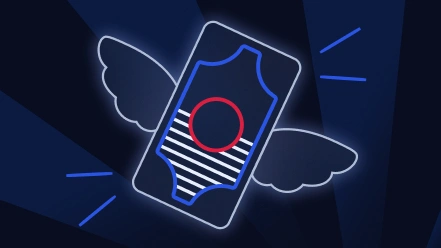
US Gambling Laws Guide 2026
Understanding US betting laws and the states where gambling is legal and illegal in the US can be tricky because laws vary considerably at state level. Fortunately, our in-depth US gambling laws guide is here to help you understand the legal status of casino gambling, online and off, in your jurisdiction.
US Gambling Laws By State
Explore the latest gambling laws specific to your state to stay informed about the legal landscape where you live. Select your state below to find up-to-date information on gambling regulations and restrictions.
Alabama
Alabama permits certain forms of gambling, including fantasy sports, charity gaming, and tribal gaming. The state maintains a restrictive stance on broader gambling activities. While a bill regarding mobile gaming advanced in 2021, Alabama remains opposed to legalizing mainstream gambling, partially due to its position in the Bible Belt. Additionally, sweepstakes casinos are available as a legal alternative for players seeking online gaming experiences in the state.
Legal Gambling Age: 19
Online Gambling
Status: Limited
Outside of sweepstakes casinos, online gambling is not available in Alabama. Sweepstakes casinos offer alternative for players seeking online gaming experiences in the state. There have been occasional pushes for more expansive gambling, but nothing has significantly changed in recent years.
Brick & Mortar Gambling
Status: Limited
Except for tribal gambling, brick-and-mortar casinos are not prevalent in Alabama. The Poarch Creek Indians operate three casinos. Attempts to pass broader gambling legislation have generally failed, and significant changes are unlikely in the near future.
Other types of gambling
Charitable Gaming
Social Gambling
Parimutuel Betting
Racetracks
State Lottery
Tribal Casinos
Fantasy Sports
States Where Gambling Is Legal
Even though many forms of gambling are legal under federal law, each state has different laws that relate to gambling. That might sound strange to those located outside the US, but most residents will be used to these differences; real estate law and taxation are two other entities that vary from state to state.
The Supreme Court’s landmark decision in 2018 that Professional and Amateur Sports Protection Act (PASPA) was unconstitutional opened the floodgates for states to legalize sports betting. To date, there hasn’t been an equivalent ruling on online casinos anywhere near as explicit as this was.
It might take a similar decision about other forms of gambling for more states to become confident enough to regulate online casinos and/or poker in a similar way.
Many states seem content to confine legal gambling within their boundaries to brick-and-mortar venues only. One argument here is that it’s easier, and potentially more lucrative, for them to manage and restrict activity in physical venues.
If you include tribal casinos under the same category as legal brick-and-mortar gambling, the number of states with some form of commercial gambling available nearly doubles.
The result of all this is that the discrepancy between the way different states treat gambling is massive. New Jersey is known to be the most lenient state, in which all forms of gambling are legal. While Utah is the opposite, where everything is prohibited for religious reasons.
States Where Gambling Is Illegal
In continental US, there are still states in which virtually all forms of gambling remain illegal – Utah and Hawaii are two examples. Whether due to religious reasons, in the case of the former, or social values in the latter, it’s reasonable to believe that legal gambling may never be possible in these states.
Of course, there was a time when people thought that gambling might never come to Connecticut or Maryland, but these states now allow limited forms of the activity. That bodes well for states that have historically been strict on gambling.
States Where All Forms of Gambling Are Illegal
- Hawaii
- Utah
Legal Online Gambling in the US
Currently, there are only seven states that offer real money online casinos: Connecticut, Delaware, Michigan, Pennsylvania, New Jersey, Rhode Island, and West Virginia. The fact that states such as Michigan, Pennsylvania, and New Jersey have pushed ahead to legalize online casinos and online poker is significant. It demonstrates to other states that it can be done and can raise a huge amount of money via taxation.
Currently, 38 states have legalized sports betting in some form. Of these, 30 states offer online sports betting, allowing residents to place bets via mobile apps or websites.
Tribal Casinos
One challenge for some states to legalize is they need to negotiate a compact with tribal casinos which would define types of games allowed, revenue sharing, and regulatory oversight. Michigan and New Jersey are two states that have had success and now offer tribal-run online casinos. However, attempts to find an agreement in states like California have been tried but tribal leaders have yet to come to an agreement on how to proceed.
Did you know?
There are tribal casinos in 30 states, with 525 venues operated by North American tribes across the US.
Sweepstakes Casinos
In recent years, sweepstakes and social have provided a legal alternative online casino experience for players where real money online casinos haven’t yet been regulated. Using the US sweepstakes law framework, these casinos can offer slots and table game experiences without violating federal or state laws. They also provide a free alternative for players who do not want to gamble with their own money.
Social casinos also exist for players that just want to enjoy casino-style games purely for entertainment, without any real money or prize-winning elements. Players use virtual credits to play games like slots, poker, or blackjack, but these credits have no monetary value and cannot be redeemed for cash. Because of this they’re available to play in all 50 states.
Did you know?
There are over 50 sweepstake casino sites available to play in the US. While states available to play at these casinos can vary, they are more accessible than real money casinos.
Here are just some of the most popular casino games that players can enjoy online:
Gambling Age by State
By now you’ll know that the legal status of gambling differs greatly between states and the same applies to legal gambling ages. The age limits can fluctuate within each state depending on the casino or game you’re playing.
Here’s a quick breakdown of gambling age by state:
Federal Gambling Laws – A Brief History
In addition to state laws, the US is also subject to federal laws. These apply to the whole of the United States, although some state laws contradict their equivalents at federal level.
In this section, we’ll be looking at some of the key moments in America’s gambling history with federal law:
1961 - Interstate Wire Act
Instituted at the beginning of the 1960s, this law prohibits certain types of betting businesses in the USA. The text itself refers to “bets or wagers on any sporting event or contest”, which is vague wording that has never been satisfactorily clarified.
Clearly the act covers sports gambling, but it was never 100% apparent how it related to other types of gambling such as poker or table games. This has been debated all the way up until 2019, when US District Court Judge Paul Barbadoro issued a judgement that it only applies to sports gambling.
(Interstate Transportation of) Wagering Paraphernalia Act
In addition to introducing the Interstate Wire Act, the US government doubled down on their gambling crackdown with the Wagering Paraphernalia Act.
This act criminalized the interstate transportation of “any record, paraphernalia, ticket, certificate, bills, slip, token, paper, writing, or other device used, or to be used, adapted, devised or designed for use in” bookmaking or other gambling activities.
Another day, another act with vague wording! But the aim of the US government here was simple: to make it illegal, and therefore more difficult, to transport any sort of supplies that could be connected with the act of gambling.
1970 - Illegal Gambling Business Act
Enacted as part of the Organized Crime Control Act of 1970, the main targets of this act were large gambling operations. The government believed, accurately in some cases, that such operations were connected to and/or financing organized crime.
The act stipulates that any gambling business that involves five or more persons and “has been or remains in substantially continuous operation for a period in excess of thirty days or has a gross revenue of $2,000 in any single day” is illegal. Clearly, the latter of those statements would very likely to apply to anyone operating an online casino within the USA.
1992 - PASPA
The Professional and Amateur Sports Protection Act of 1992, also known as the Bradley Act, has been overturned since it was introduced in the early ‘90s. It’s still, however, worth covering here in the interest of forming a complete picture of gambling’s history in the USA.
The text of the act is lengthy and complex, but the text of the bill gives you more than enough clues to figure out its aim: “An Act to prohibit sports gambling under State law.” It covered much the same ground that the Interstate Wire Act of 1961 did but specifically addressed other activities (such as fantasy sports) that hadn’t previously been covered.
2006 - UIGEA
The Unlawful Internet Gambling Enforcement Act of 2006 prohibits gambling businesses from “knowingly accepting payments in connection with the participation of another person in a bet or wager that involves the use of the Internet.”
What’s interesting here is that this act specifically refers to accepting payments, rather than the act of gambling itself.
Clearly, this opened a number of grey areas that would be gamblers could take advantage of, such as using anonymous payment methods or playing with international casino sites that might not be subject to American laws.
Federal and State Taxes on Gambling
If you’re serious about gambling, we advise discussing taxation on gambling activity with an accountant or tax expert with relevant experience in your state. With that said, there are a few key questions related to gambling and federal tax covered below:
What Are Deemed as Gambling Winnings?
In practice, most wins from any activity in which you wager real money – lottery payouts, bingo or keno, poker, slot machines, or other casino games – are deemed gambling winnings. Even non-cash prizes such as a vehicle or a vacation are considered gambling winnings, and their FMV (fair market value) should be included in income statements.
How Are Players Taxed on Gambling Winnings?
Because gambling winnings are seen as a type of income by the US government – and are often also called gambling income – they’re subject to federal income tax. In states where it applies, they may also be subject to state income tax.
A silver lining is that you may be able to declare gambling losses up to, but never more than, the value of your gambling winnings. You’ll need to keep a close eye on your losses if you intend to do this, as well as collect relative documentation.
Are There Federal Taxes on Your Winnings?
Unfortunately, just about any gambling win you’d get legitimately excited about is subject to federal taxation, usually at a flat rate of 24%. You should be provided with a Form W2-G and withholding may be required if your winnings exceed the following thresholds:
- More than $600 in winnings from sweepstakes, wagering pools, or lotteries
- At least 300 times the amount of the bet
Which States Tax Gambling Income or Not?
As well as at the federal income tax level, you may also need to pay state income tax on gambling winnings. The only states that don’t require residents to pay state income tax on them are as follows:
- Alaska*
- California
- Florida*
- Hawaii
- Nevada*
- New Hampshire*
- South Dakota*
- Tennessee*
- Texas*
- Utah
- Washington*
- Wyoming*
*States marked with an asterisk either don’t have any state income tax or don’t tax earned wages, so gambling is only exempt because it falls under that heading.
FAQs About Gambling Laws
How many states have legalized gambling?
Given the different status of every state, it’s hard to put a blanket figure against this. However, if you include lotteries, some form(s) of gambling is legal in 48 out of 50 US states.
Is it illegal to bet for someone else?
Casinos and gambling sites will only accept bets if they can verify the identity of the person placing them. Legally speaking, you shouldn’t be placing bets for anyone else or asking them to do so on your behalf.
Is it illegal to gamble at home?
This depends on the nature of the gambling activity, as well as the state you’re in. Lotteries, for example, are widely available in most US states but online gambling is permitted in far fewer.
What was the first state to legalize gambling?
When most people think of American gambling, they think of Las Vegas. Not by coincidence, Nevada was the first US state to legalize gambling.
Is illegal gambling a felony?
If the act of illegal gambling is conducted as a business, this constitutes a federal crime. On a personal level, however, the act of playing may be classified as a misdemeanor or a felony depending on the state it’s conducted in.
Where can I gamble legally online?
Residents of many US states, more details on which above, can now gamble legally at online casinos created specifically for American players.



